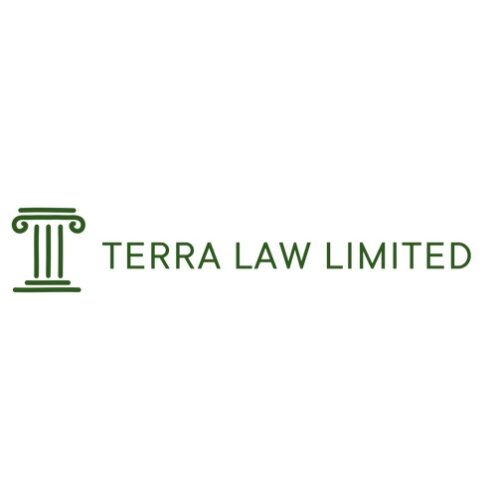Best Mining Law Lawyers in Hamilton
Share your needs with us, get contacted by law firms.
Free. Takes 2 min.
List of the best lawyers in Hamilton, Bermuda
About Mining Law in Hamilton, Bermuda
Mining Law in Hamilton, Bermuda, addresses the regulation, exploration, and extraction of mineral resources within the jurisdiction. While Bermuda is better known for its tourism and international business sectors, the regulatory landscape still provides a framework for potential mining activities. The law determines how mineral rights are granted, the permitting process, environmental considerations, and the obligations of those involved in mineral exploration and extraction. In recent years, attention has focused on offshore resources and the protection of Bermuda’s unique marine and terrestrial environment.
Why You May Need a Lawyer
A lawyer with experience in Mining Law can provide indispensable help in several scenarios. Individuals and companies may need legal assistance when applying for mining rights or permits, negotiating land use agreements, or addressing environmental impact assessments. Legal help is also crucial when resolving disputes over ownership or usage of mineral resources, interpreting contracts with third parties, or understanding Bermuda’s unique regulatory requirements. Further, as the law often intersects with maritime, environmental, and property regulations, having an informed legal advisor can help avoid costly mistakes and ensure compliance with all relevant legal obligations.
Local Laws Overview
Mining operations in Hamilton and across Bermuda are principally regulated by the Bermuda Mineral Act 1961 and subsequent amendments, which outline how mineral resources are managed. The legislation vests mineral rights in the Government of Bermuda, meaning private landowners do not automatically have rights to minerals under their land. Anyone seeking to explore or extract minerals must obtain a license or lease from the Bermuda Government. The process often includes comprehensive environmental assessments due to Bermuda’s ecological sensitivity.
Other key laws include environmental protection statutes such as the Environmental Protection Act 1978 and Marine Board Act 1962, which may apply if mining activities affect the land or sea. All applicants must demonstrate strict adherence to safety, environmental stewardship, and sustainable practices. Because of Bermuda’s small geographic size and environmental policies, any proposed mining activity is subject to close scrutiny by local authorities.
Frequently Asked Questions
What minerals are commonly regulated under Bermuda’s Mining Law?
Most minerals, including sand, gravel, and any metallic or non-metallic elements found offshore or on land, are regulated by Bermuda’s Mining Law.
Can I mine on my privately owned land in Hamilton, Bermuda?
No. Mineral rights are owned by the Government, not the landowner. You must apply for a government license or lease regardless of property ownership.
What is the process for obtaining a mining license?
You must submit a detailed application to the relevant government ministry, often including technical surveys and environmental impact assessments. Licenses or leases are granted at the government's discretion.
Are there restrictions on offshore mining?
Yes. Offshore mining requires special permits and stringent environmental review to protect marine ecosystems and Bermuda’s territorial waters.
Do environmental laws affect mining operations?
Absolutely. All mining in Bermuda is subject to strict environmental regulations aimed at protecting the island’s land and sea environments from pollution or ecological harm.
What government body oversees mining activities?
The Ministry of Home Affairs, particularly the Department of Environment and Natural Resources, is primarily responsible for issuing permits and monitoring compliance.
How are disputes over mining rights resolved?
Disputes can be negotiated privately, but may also require intervention by courts or relevant tribunals, especially when governmental decisions are challenged.
Do I need an environmental impact assessment (EIA) for all mining projects?
Most applications for new or expanded mining activities will require a formal EIA, and public consultation processes may be necessary depending on the project's scope.
Is sand removal regulated as part of mining?
Yes. Even activities such as sand extraction for construction or landscaping are regulated and often require permits from the Bermuda Government.
Can foreign companies apply for mining rights in Bermuda?
Foreign entities can apply, but may face additional restrictions and must comply with all local laws. Collaboration with local partners is often advisable.
Additional Resources
For those seeking additional guidance or official information regarding Mining Law in Hamilton, Bermuda, the following resources are valuable:
- Bermuda Government Ministry of Home Affairs
- Department of Environment and Natural Resources
- Bermuda Office of the Attorney-General
- Bermuda Environmental Sustainability Taskforce (BEST) - advocacy and education
- Local legal associations and law firms specializing in environmental and resource law
Next Steps
If you require legal assistance with a mining matter in Hamilton, Bermuda, begin by collecting all relevant information about your situation, including any communication with government bodies, land titles, or prior permit applications. Consult a qualified Bermuda-based lawyer who specializes in Mining Law and environmental matters. Many local legal professionals offer initial consultations to assess your needs and outline a viable legal strategy.
Engaging early with a legal advisor can help you understand your rights and obligations, successfully navigate complex regulatory pathways, and avoid pitfalls unique to Bermuda’s legal landscape. Take proactive steps to ensure compliance and protect your interests as you move forward.
Lawzana helps you find the best lawyers and law firms in Hamilton through a curated and pre-screened list of qualified legal professionals. Our platform offers rankings and detailed profiles of attorneys and law firms, allowing you to compare based on practice areas, including Mining Law, experience, and client feedback.
Each profile includes a description of the firm's areas of practice, client reviews, team members and partners, year of establishment, spoken languages, office locations, contact information, social media presence, and any published articles or resources. Most firms on our platform speak English and are experienced in both local and international legal matters.
Get a quote from top-rated law firms in Hamilton, Bermuda — quickly, securely, and without unnecessary hassle.
Disclaimer:
The information provided on this page is for general informational purposes only and does not constitute legal advice. While we strive to ensure the accuracy and relevance of the content, legal information may change over time, and interpretations of the law can vary. You should always consult with a qualified legal professional for advice specific to your situation.
We disclaim all liability for actions taken or not taken based on the content of this page. If you believe any information is incorrect or outdated, please contact us, and we will review and update it where appropriate.

















